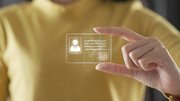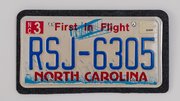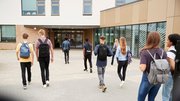News
Researchers identify problems in electronic voting machines
July 24, 2003
BALTIMORE -- Touchscreen voting machines manufactured by Diebold Election System may harbor serious software flaws that could allow voters or poll workers to manipulate election results, according to a study conducted by researchers from Johns Hopkins University and Rice University.
According to a Baltimore Sun report, Diebold's electronic voting systems, which have been used for elections in California, Georgia and Maryland, are vulnerable to problems ranging from multiple voting to vote switching. The study said some hacks could be accomplished with little expertise, using inexpensive, widely available equipment.
In a statement, Diebold defended the system and said its machines were certified by federal, state and local officials. It said the code the Hopkins researchers tested appears to be outdated. "We believe that the software code they evaluated, while sharing similarities to the current code, is outdated and never was used in an actual election," the statement said.
The researchers said in their report that the software was discovered on a Diebold Internet site in January.
Diebold also criticized the researchers for not contacting them during the analysis. The research "overlooked the total system of software, hardware, services and poll worker training that have made Diebold electronic voting systems so effective in real-world implementations," Diebold said in its statement.
Election officials in states where the Diebold machines have been used supported that view. "They don't know what version of software it was and are testing it out of context -- you have to test the software and hardware together," said Michael Barnes, assistant director of elections in Georgia, where 22,000 Diebold voting machines are in use.
However, Diebold said it would "reserve judgment on the researchers' fundamental conclusions."
Diebold recently closed a $55.6 million agreement with Maryland to supply more than 11,000 of its AccuVote-TS touch-screen voting machines. More than 5,000 are already in use in Allegany, Dorchester, Montgomery and Prince George's counties.
Maryland election officials said that they had contacted Diebold about the Hopkins report but continued to have confidence in the system.
"With any computer software, you always have some risk," said Linda H. Lamone, Maryland's state administrator of elections. But she added, "There's so many checks and balances in this process."
The report bolstered criticism of electronic voting, with activists calling for more open evaluation of the software used in the machines, as well as mandatory paper backup systems. A "paper trail" requirement has been proposed in a House bill introduced by U.S. Rep. Rush Holt, D-N.J.
Many complain that electronic voting systems, including the AccuVote-TS, store a vote only in computer memory, without creating a simultaneous paper record. Without an audit trail, critics argue that electronic voting machines are too vulnerable to fraud or failure.
The Diebold software the Hopkins security researchers acquired was vulnerable in several ways, the report said. One of the flaws concerned the so-called "smart cards" that voters insert into the machine to cast their vote.
The cards contain a small computer chip that ensures each voter casts only one ballot. But Hopkins researchers concluded that by using blank cards and programs widely available over the Internet, a dishonest voter could cast multiple ballots.
"Any teenager in their garage could make one of these," said Tadayoshi Kohno, a Hopkins computer security researcher who worked on the report.
Researchers also said that someone with more access to the machine --such as a poll worker -- could make it appear that a vote cast for one candidate is actually recorded for another.
Douglas Jones, a University of Iowa computer science professor who serves on Iowa's board of examiners for electronic voting systems, said he recognized one of the encryption flaws cited by the researchers' report as one he called attention to during a board meeting at least five years ago.
"I can say with great confidence that several Diebold representatives were at the meeting, and one of their people who was described to me as being one of their main programmers. The fact that that flaw is still there, half a decade later, is as far as I'm concerned grounds for decertifying their machine," said Jones in an MSNBC report.
Jones said that based on the researchers' report, he recommended decertification to Iowa's secretary of state on July 23.
 ChatGPT
ChatGPT Grok
Grok Perplexity
Perplexity Claude
Claude










